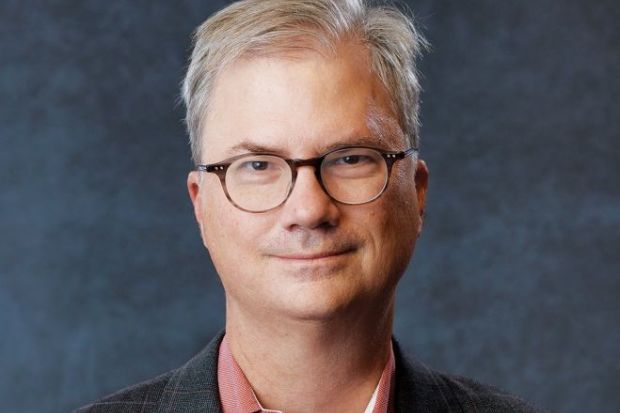The top editor at Science, Holden Thorp, has called for the abolition of the top US accreditor of science and engineering programmes, accusing it of harming the world by steering curricula away from essential humanities content.
Dr Thorp, a former chancellor of the University of North Carolina at Chapel Hill, urged the elimination of Abet as part of a broad plea for universities to fight the fracturing and weakening of US society over matters of scientific misunderstanding and mistrust.
Abet was created in 1932 and formerly known as the Accreditation Board for Engineering and Technology. Its assessment and approval of academic programmes is widely regarded as the premier marker of quality in applied and natural sciences, computing and engineering.
But Dr Thorp, head of one of the world’s most respected journals for publishing academic research, accused Abet of piling on field-specific course requirements that prevented universities producing innovators more capable of handling the essential human-related parts of their work.
The many devastating public policy failures arising from that approach, Dr Thorp told an online audience at Oregon State University, included the persistence of the Covid pandemic in the US due to the determined refusals of many Americans to use scientifically proven vaccines.
“Abet should just be abolished,” the Science magazine editor-in-chief said in a keynote presentation for OSU’s annual University Day event.
Abet, in a response, said that its criteria for programme evaluation “emphasises many areas that are also emphasised in a liberal arts education and the humanities”.
Those areas include “ethics, the ability to work in a collaborative and inclusive environment, communication skills, and considerations related to public health, safety, and welfare”, Abet’s spokeswoman told Times Higher Education.
Dr Thorp, in turn, told THE he doesn't know of a single instance of Abet reducing, rather than increasing, the number of science and engineering courses it requires for a degree.
The spokeswoman said that Abet criteria does expect “foundational knowledge” in science, mathematics and engineering, but “does not require any specific courses be included in any Abet-accredited programme”.
Since taking charge at Science in August 2019, Dr Thorp has made clear his intent to address human behaviour and political dysfunction as fundamental elements of the problem-solving role he sees for academic research.
That effort is highlighted by an editorial column he writes in Science that includes a September 2020 entry directly accusing then-President Trump of worsening the pandemic by lying about it.
Universities are being too timid in fighting back against the politicians and political forces their leaders know are creating and exacerbating social ills, Dr Thorp told the OSU event.
He branded both Facebook and the US News and World Report’s college rankings as “diabolical” and also worthy of elimination – the former because it is still making only superficial moves to block deadly misinformation, and the latter “because they’ve done nothing except take away equity from higher education”.
Universities are also too fearful to confront Greek life, the distractions of their sports programmes, and political interference by governing boards, said Dr Thorp, who battled all three at Chapel Hill and left in 2013 after scandals involving the football team and others.
His additional proposed solutions include lower-level science courses that emphasise the joy as much as the maths; quality courses for both science majors and humanities majors to learn about the other; universities reaching out to their neighbours of differing political perspectives; and television dramas that portray scientists as human beings tackling real-world dilemmas.
Dr Thorp holds a doctorate in chemistry from the California Institute of Technology, and he complained that Abet’s standards leave undergraduates in his field facing graduate-level courses, and engineering students taking three thermodynamics classes.
“We have a lot of righteous colleagues, and I used to be one of them – so I don’t mind saying that – who think that that’s incredibly important if we want rigorous scientists,” he said of such course requirements. “But we’re paying the price for that now because we haven’t given those undergraduates a holistic view of the world.”
Dr Thorp also warned against the popular strategy of eliminating paywalls in scientific journals by charging authors article-processing fees. That financing method will increasingly shut out scientists, especially in lower-resourced fields, as the fees steadily rise, he said.
Science instead is keeping its paywall across articles but limiting durations to six months, allowing authors to freely and immediately post their own versions, and basing subscription rates on each institution’s ability to pay, he said.
That approach, Dr Thorp said, “is the best we can do with the constraints that we have”.
Register to continue
Why register?
- Registration is free and only takes a moment
- Once registered, you can read 3 articles a month
- Sign up for our newsletter
Subscribe
Or subscribe for unlimited access to:
- Unlimited access to news, views, insights & reviews
- Digital editions
- Digital access to THE’s university and college rankings analysis
Already registered or a current subscriber? Login








